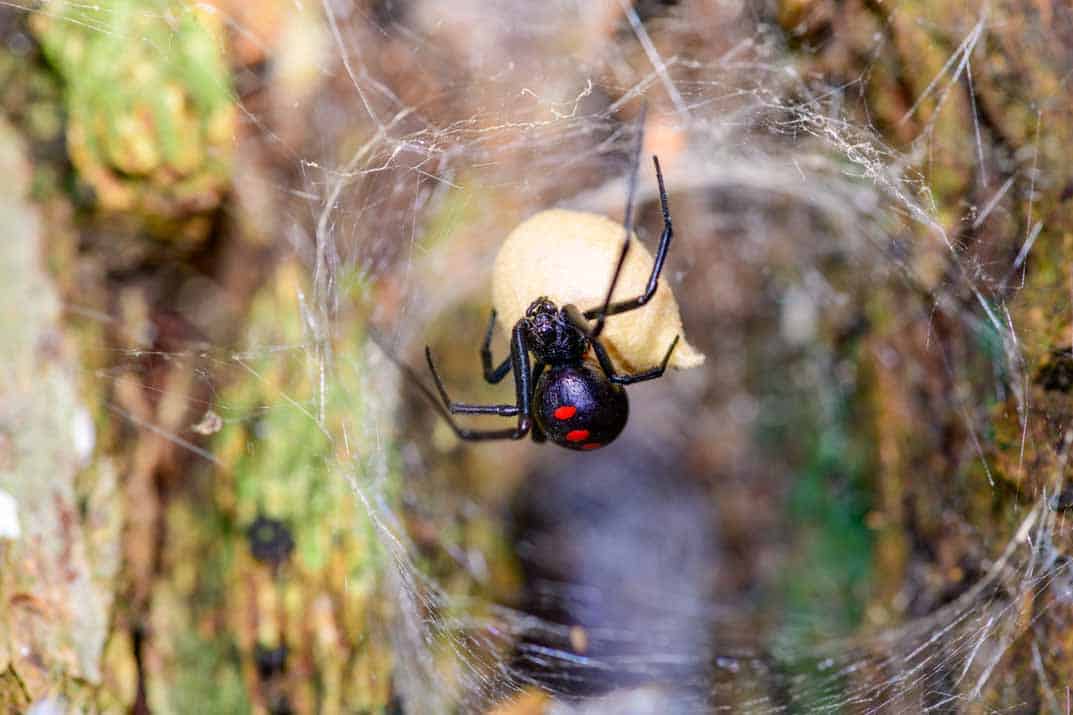At Wake Pest, we understand that the word “pesticide” can make some homeowners uneasy. Chemical pesticides have long been the go-to solution for dealing with pests, including spiders, but as environmental awareness grows, many people are looking for greener alternatives. We’re big believers in eco-friendly spider control—not just because it’s better for the planet, but because it can also be safer for your family and pets.
Why Consider Eco-Friendly Options?
Traditional chemical treatments can undoubtedly be effective, but they often come with potential downsides:
- Toxic Residues: Harsh chemicals can linger in your home or yard, exposing children, pets, or beneficial wildlife to harmful substances.
- Environmental Impact: Some chemicals can travel through runoff into waterways, affecting aquatic life and other ecosystems.
- Resistance: Overuse of the same pesticides can lead to resistant spider populations, making control more difficult over time.
On the flip side, eco-friendly spider control focuses on using nature-based or low-toxicity products and techniques that target spiders without introducing unnecessary risks to people or the environment.
Natural and Low-Impact Treatments
Eco-friendly spider control may include:
- Essential Oil Sprays: Oils like peppermint, cedar, or citrus can help repel spiders without harming them or your family.
- Physical Barriers: Rather than relying solely on chemicals, sealing cracks, installing door sweeps, and repairing screens to keep spiders out is a key step.
- Mechanical Removal: Vacuuming up webs, egg sacs, and even live spiders is a quick way to reduce the population without using chemicals.
- Sticky Traps: Glue boards placed strategically can capture spiders and other insects, helping to monitor activity levels.
These treatments are often supplemented with integrated pest management (IPM) strategies, which aim to address the root causes of spider infestations—such as humidity, clutter, or abundant insect prey—rather than just treating the symptoms.
The Integrated Pest Management (IPM) Approach
IPM is essentially the “big picture” approach to pest control. Here’s how it often works in practice:
- Inspection: Our team assesses your home to identify where spiders are entering and why they’re staying (usually for food and shelter).
- Prevention: We recommend changes or repairs to remove spider-friendly conditions, like excess clutter or unsealed entry points.
- Low-Toxicity Treatments: If spiders are already present in large numbers, we use targeted, minimal-risk products.
- Monitoring: After treatment, we keep an eye on spider populations to ensure the methods are working. If needed, we adjust the plan.
With IPM, chemicals are more of a last resort rather than a first line of defense, which greatly reduces your exposure to toxins.
Are Eco-Friendly Methods Effective?
One of the biggest questions we get is, “Do natural or low-impact methods actually work?” The short answer: Yes, they can be highly effective, especially when combined with good home maintenance. In many cases, spiders are there because of an ample food supply (insects) or easy access to the indoors. Addressing these factors can dramatically lower spider populations without heavy chemical use.
However, it’s important to recognize that eco-friendly methods may require a bit more patience and a more holistic approach. You might not see the instant results you get with some strong pesticides, but the outcome can be more sustainable and less risky over time.
Protecting Beneficial Insects and Pollinators
Another reason we’re fans of eco-friendly solutions is that they help protect non-target organisms—namely, beneficial insects and pollinators. Bees, butterflies, and ladybugs are crucial for our gardens and the broader ecosystem. Traditional pesticides can’t always differentiate between pests and helpful bugs.
By using specific, lower-toxicity methods, we aim to zero in on your spider problem without wiping out the entire insect community in your yard. This approach fosters a healthier environment for your plants and for the local wildlife.
Keeping Your Family Safe
Safety is usually top-of-mind for homeowners with children or pets. By choosing eco-friendly methods, you can greatly reduce the worry that your kids or furry friends might come into contact with harmful chemicals. Additionally, many of these green solutions are designed to dissipate quickly or remain only in targeted areas, minimizing exposure risks.
Long-Term Cost Benefits
Some people assume that eco-friendly automatically means “more expensive.” While it’s true that certain natural products can come with a higher price tag, you might be surprised at the long-term savings:
- Reduced Recurrence: Because eco-friendly and IPM-focused strategies aim at root causes, you’re less likely to face recurring or resistant spider populations.
- Fewer Products Needed: Once your home is well-sealed and free of attractants, you don’t need to keep applying pesticides repeatedly.
- Health and Environmental Savings: It’s hard to put a price on your family’s well-being, but avoiding potential health risks can save on medical expenses down the line.
Plus, many eco-friendly fixes—like better insulation and sealing gaps—can improve your home’s overall efficiency. That can mean lower energy bills throughout the year.
Practical Tips You Can Implement
If you want to try some of these green methods on your own before calling in the pros, here are a few of our top recommendations:
- Use Essential Oil Sprays: Create a simple mixture of water and peppermint or citrus oil. Spray entry points or corners where you’ve seen spiders.
- Vacuum Regularly: Removing webs, egg sacs, and live spiders reduces future populations dramatically.
- Clean Up Yard Debris: Keep woodpiles and leaf litter away from your home to reduce spider hangouts.
- Check Your House for Leaks: Fixing leaks and reducing humidity makes your home less inviting to insects and spiders.
Consistency is key. A bit of effort here and there can have a surprisingly large impact on spider activity.
When to Seek Professional Help
While eco-friendly strategies are a great first line of defense, there are times when you might need some expert intervention:
- Severe Infestations: If your home is overrun with spiders, natural DIY methods may not be enough.
- Venomous Spiders: If you suspect black widows or brown recluses, it’s safer to call professionals trained in handling them.
- Structural Repairs Needed: If your home has significant cracks or moisture problems, a contractor or professional pest control service can address them more effectively.
At Wake Pest, we’ll work with you to create a balanced plan. Sometimes, that involves minimal use of targeted, lower-toxicity products, combined with IPM measures. We tailor our approach to your specific situation, taking into account factors like the presence of children, pets, and local wildlife.
Our Perspective
We’ve seen firsthand how well eco-friendly methods can work when they’re part of a thoughtful, all-encompassing plan. Our philosophy is to treat your home as if it were our own, using the safest and most effective tools at our disposal.
In fact, we often find that once homeowners understand the principles of IPM, they feel more empowered to take certain steps themselves—like sealing cracks or reducing clutter—before bringing in professional help. This collaboration can lead to great results, a healthier environment, and a more satisfied homeowner.
The Bottom Line
Eco-friendly spider control solutions aren’t just a trend; they’re a practical way to protect your home and family without compromising on effectiveness. By focusing on prevention, using natural or low-impact products, and employing strategic methods like IPM, we can manage spider populations responsibly.
At Wake Pest, we’re here to guide you through these greener approaches. Whether you’re looking to do it all yourself or want a helping hand from seasoned professionals, we’re proud to offer solutions that respect both your household and the Raleigh environment. If you have questions or want to discuss an eco-friendly treatment plan, feel free to reach out. We’d love to help you strike the perfect balance between a spider-free home and a healthy planet.

